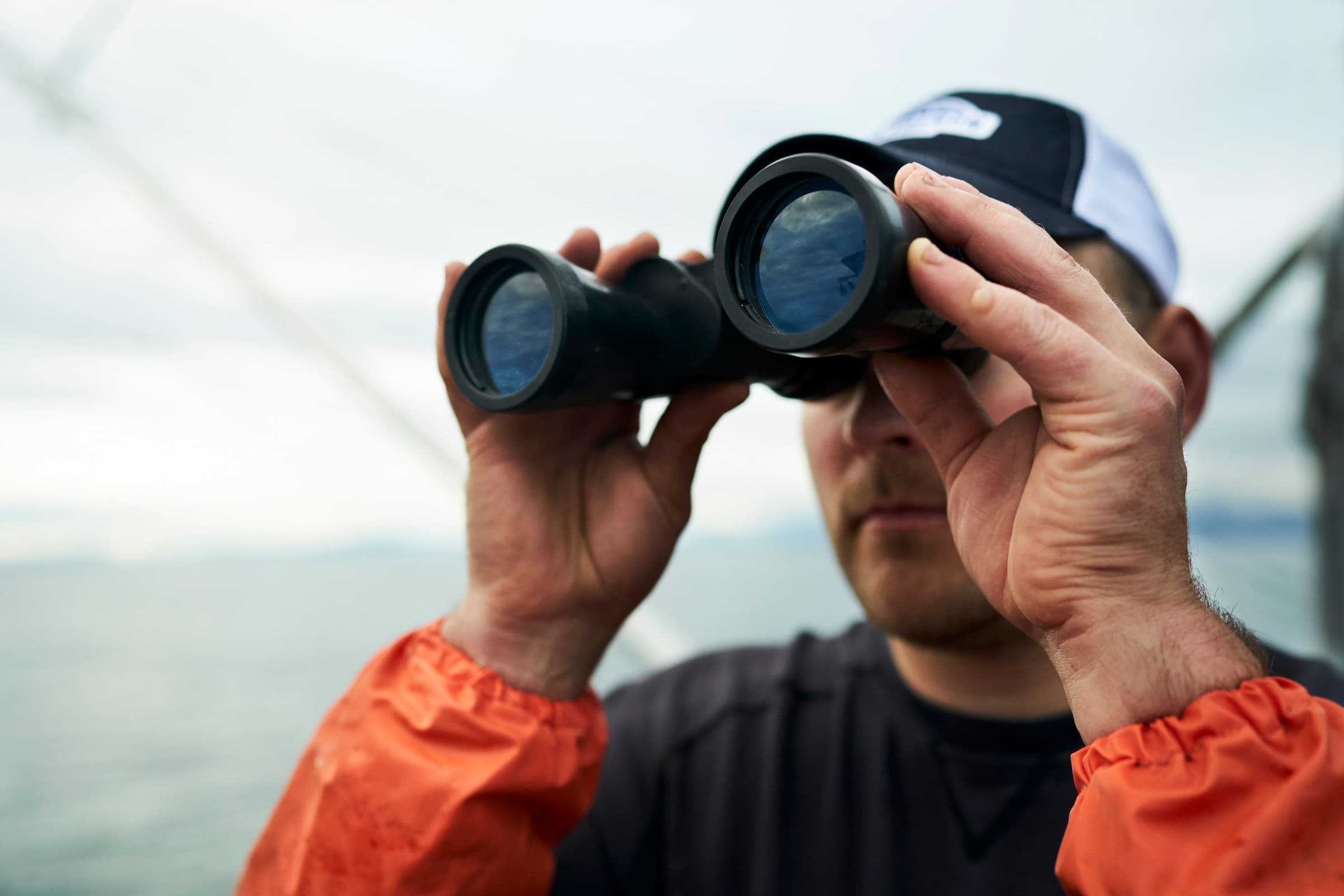Colder Days Ahead
If you associate pumpkin spice lattes with fall or Shamrock Shakes with spring, then food marketing has done its job and fulfilled your need for seasonality. If you have ever enjoyed a ripe tomato in February or bananas far north of the equator, you can thank modern technology and global trade networks for freeing us from the limits nature imposes through seasons and climate. Some of us have eating habits so detached from the rhythms of the sun that what’s on our plate at dinnertime is dictated more by markets than nature.
When it comes to catching wild seafood, fishermen confront strict boundaries at sea and Alaskans of every stripe confront the changing of the seasons. The Autumnal equinox is upon us, so let's discover how Alaskans prepare for winter.
Rhythms of the Sun
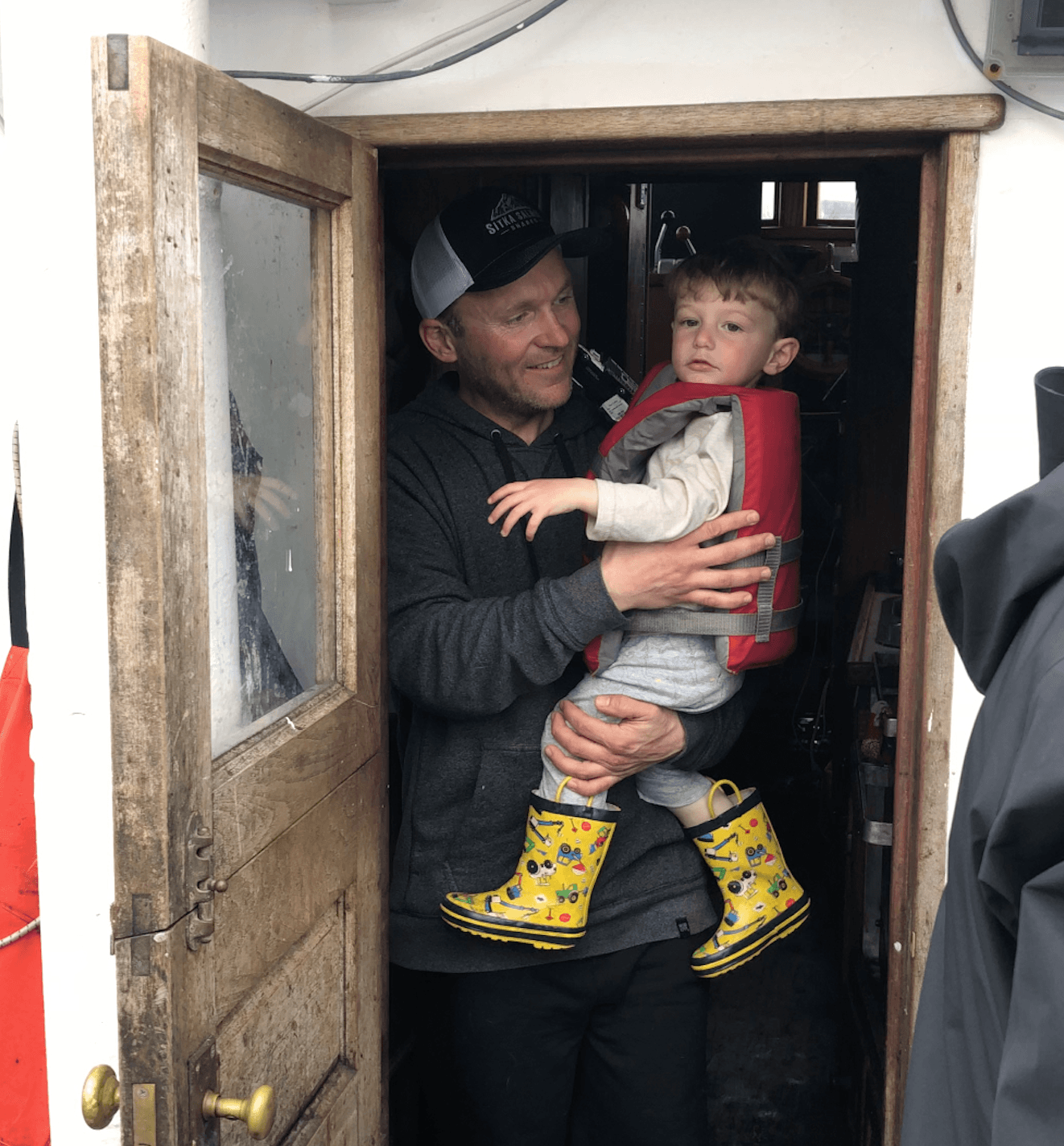
Fishing continues through the winter in Alaska, but it pales in comparison to the frenzy of the summer salmon runs. As the days get shorter, fishermen reset for the next season and enjoy some much-needed rest.
Fisherman Casey DiGennaro used to fish all year round on his boat, the F/V Eileen. Casey’s son, Magnus, turned two in March and that led Casey to rethink his seasons. Rather than chase far-off winter fish, Casey decided to stay home. “I want more and more time with my son and this winter I took a job at the preschool, which will soon be his preschool, and that will allow me to have more time with him and serve the community,” Casey says.
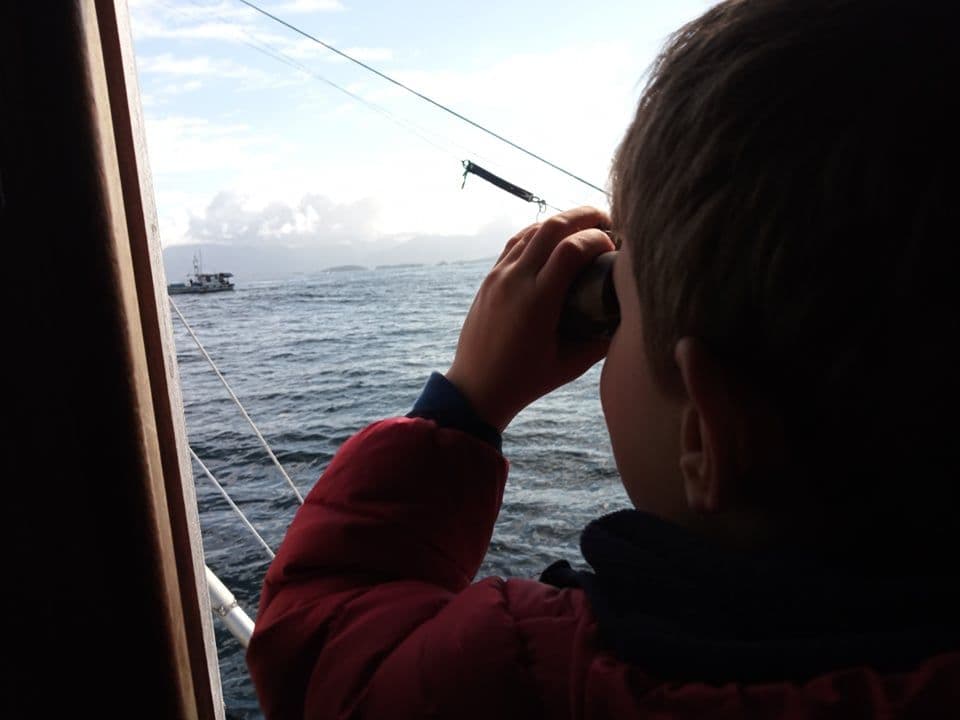
As winter approaches, many fishermen find time to reconnect with their community after a season at sea. Casey loves to play guitar with his friends in the off-season. “I really like Americana, American folk music,” Casey says. “It's easy to be inclusive with people who have never played the song before.”
Fishing communities also mark the changing seasons with local events. Sitka hosts an annual Running of the Boots race in late September to celebrate the end of summer and gather for good food, live music, and a short race in XTRATUF boots, Alaska’s ubiquitous (though clunky) footwear that is ideal for keeping feet dry — not running races.
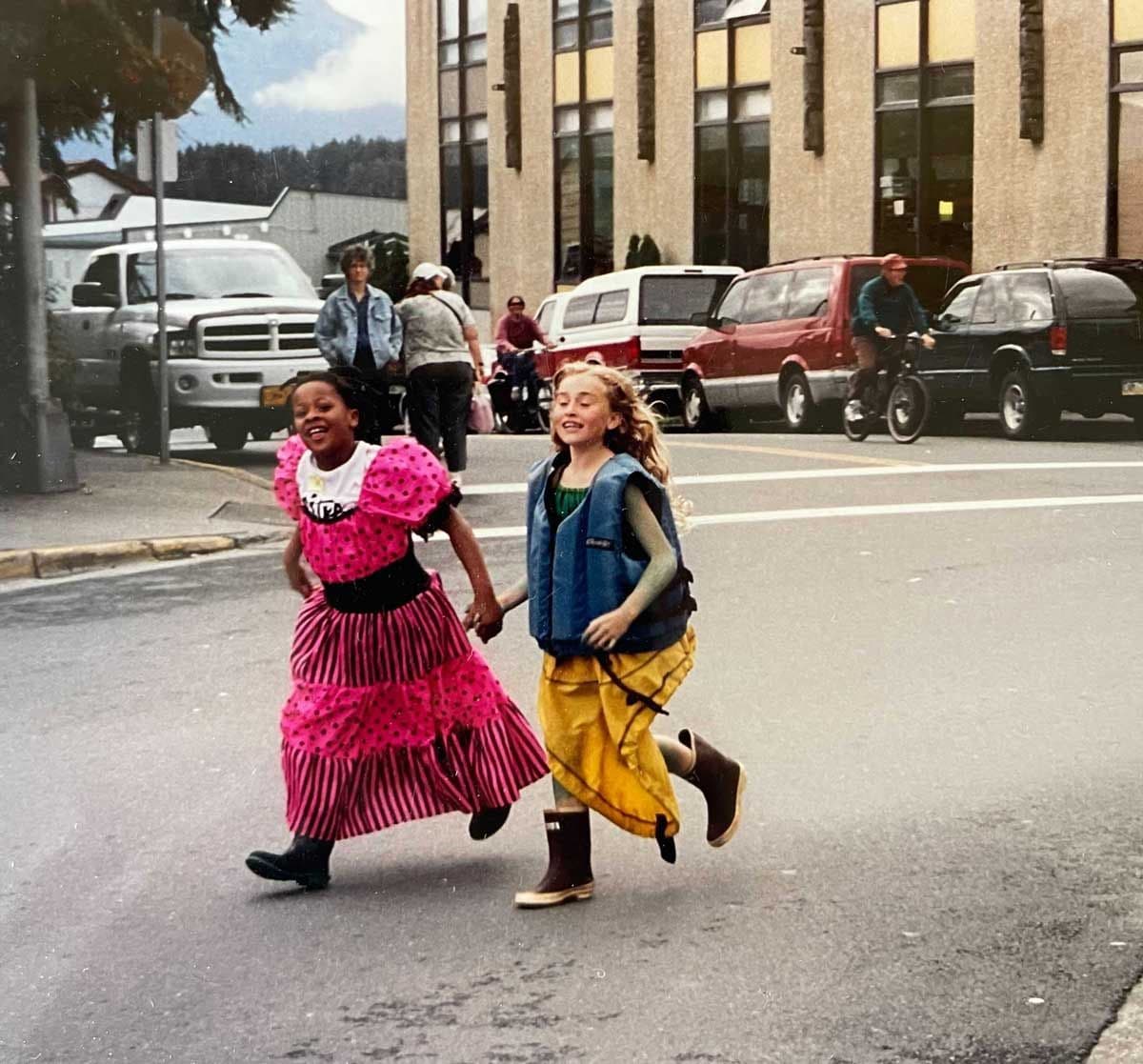
Seasons at Sea
Fisherman Karl Jordan experiences the seasons a bit differently than many fishermen because Karl takes his family fishing with him. Starting last year, Karl’s teenage daughter, Lilly, joined him as a deckhand on the F/V Samara. Lilly shoveled ice into the fish hold, pulled and bled fish, and even cooked meals for the crew.
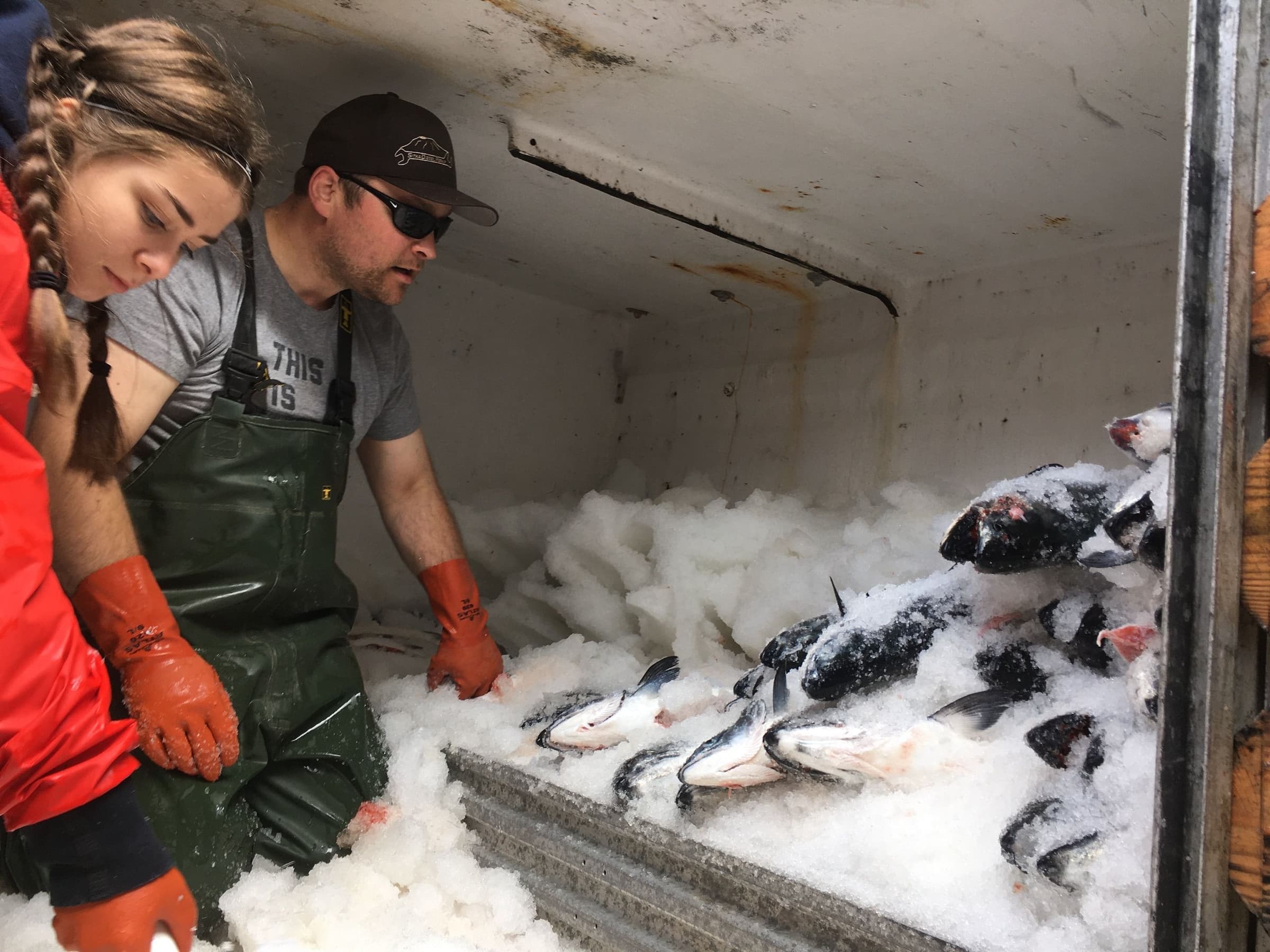
Karl’s approach to cooking is very relaxed. “I actually heat up a frozen meal on top of my engine,” Karl says. “I pull this premade casserole that my mom makes that's just feel-good fish.” While other fishermen say their goodbyes to family for weeks or months at a time, Karl has tapped into a family tradition stretching back to his grandparents. “I love getting to share this part of the family business with her,” Karl says.
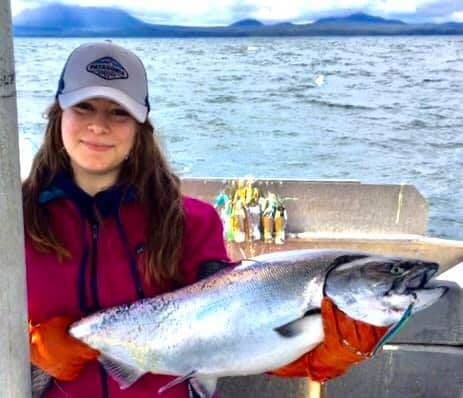
Prep for Winter with a Full Freezer
When seasons change, we also change where and how we get our food. With limited access to wild food, seasonality strengthens community bonds. The seasons matter a bit more in Alaska because the distance from global trade hubs has made access to imported goods less reliable than what folks in the lower 48 experience. As a result, Alaskans have cultivated a culture of mutual aid to prepare for the winter as a community.
Wassiliisa Bennis lives in Dillingham, Alaska, on Bristol Bay and has simple advice for newcomers. “First thing you need is a freezer,” Bennis told an interviewer with NOAA for their “Women in Alaska Fisheries” oral history project in 2018. The state recognizes a subsistence allowance of fish for all rural Alaskans, and many Alaskans store some of the season’s bounty for use in the off-season. “You know,” Bennis said, “I have a freezer for my fish. I have a freezer for my berries and I have a freezer for my moose and caribou.”
“Sharing our home pack is a special tradition in the commercial fishing community.”
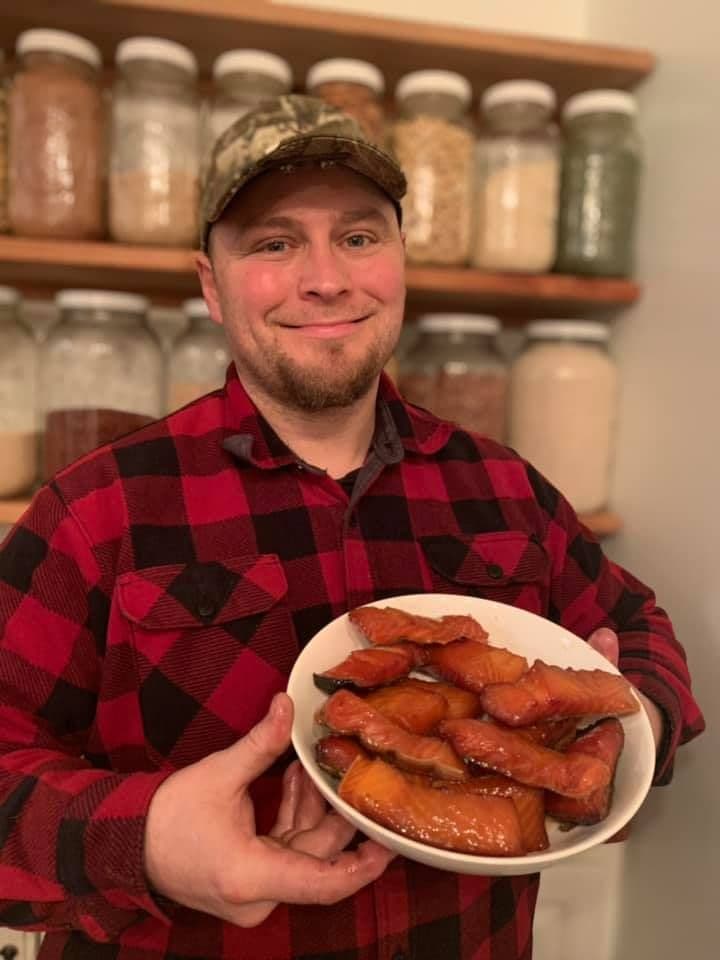
In addition to freezing, Alaskans prepare for long winter nights by smoking, canning, and even salting their summer and autumn harvests of fish, game, and berries. “I like to save a batch of ocean bright* keta to be smoked,” says Karl Jordan. When commercial fishermen save some of their catch for personal use, it's called a “home pack.” “Fishermen take pride in giving a fillet to a neighbor or an elder,” Karl says. “Sharing our home pack is a special tradition in the commercial fishing community.”
During the coronavirus pandemic, Sitka Seafood Market contributed to local efforts to donate fish to families in Sitka through schools. Karl, who teaches physical education at a local school in the off-season, helped lead the effort. “I'm literally handling hundreds of pounds of fish to families,” Karl says. “They come and pick it up, and we give them the same product that we sell to our members across the country.”
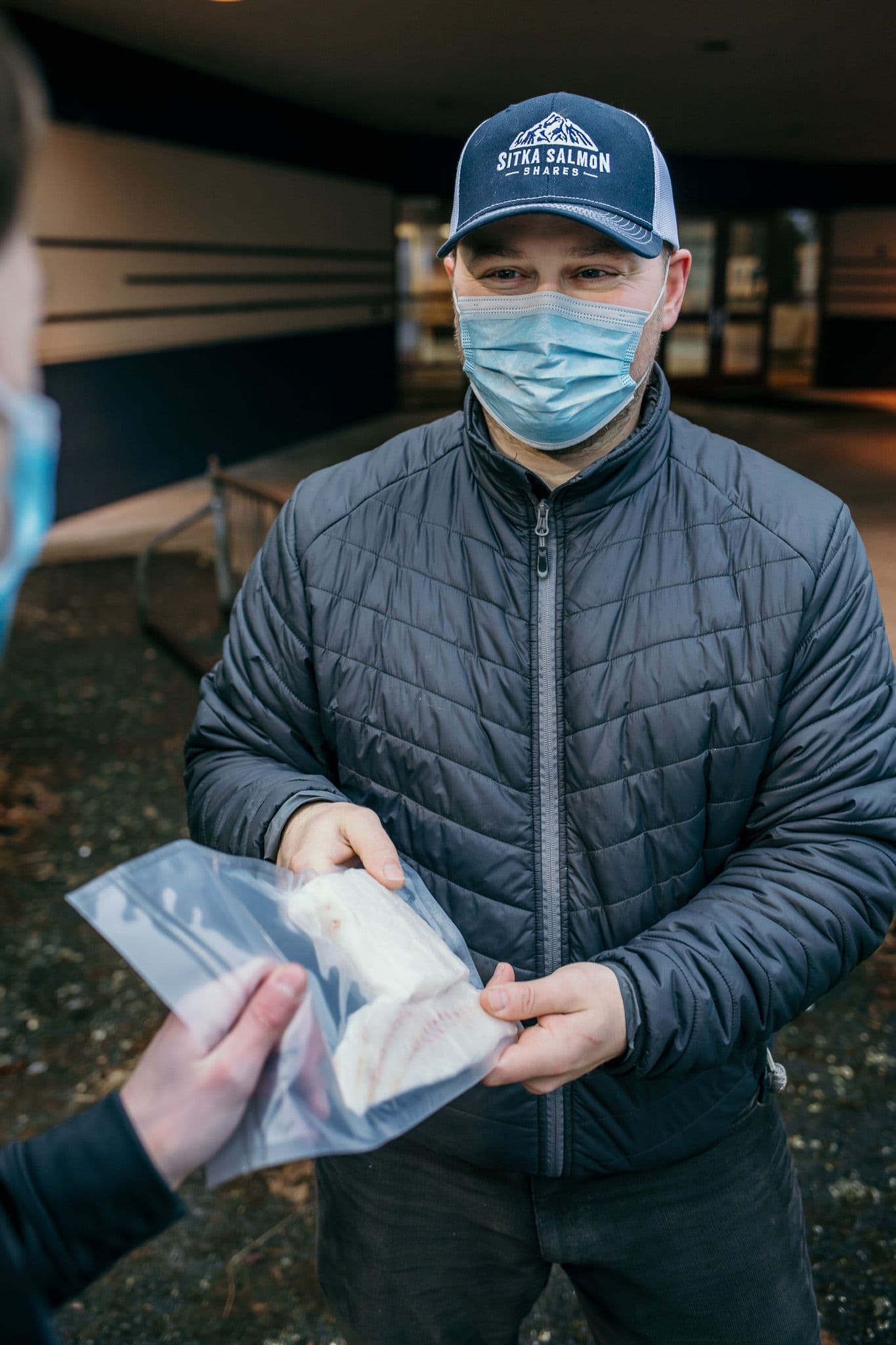
Preserving Harvests
Our shares reflect the limits of nature but we can all “cheat” the seasons by smoking, canning, or other methods of preserving our food. You will notice that some of our shares now include salmon smoked by our partners at Bearcats Fish House. Smoking salmon remains an important preservation method in Alaska and provides home cooks with a savory taste of summer throughout the winter months. Emma Bruhl describes smoking fish with her family as both a big project and a special time to gather, "We just spend the whole day processing fish. It takes hours and hours, but good things can't be rushed—plus it means that we have time to just talk and be together."
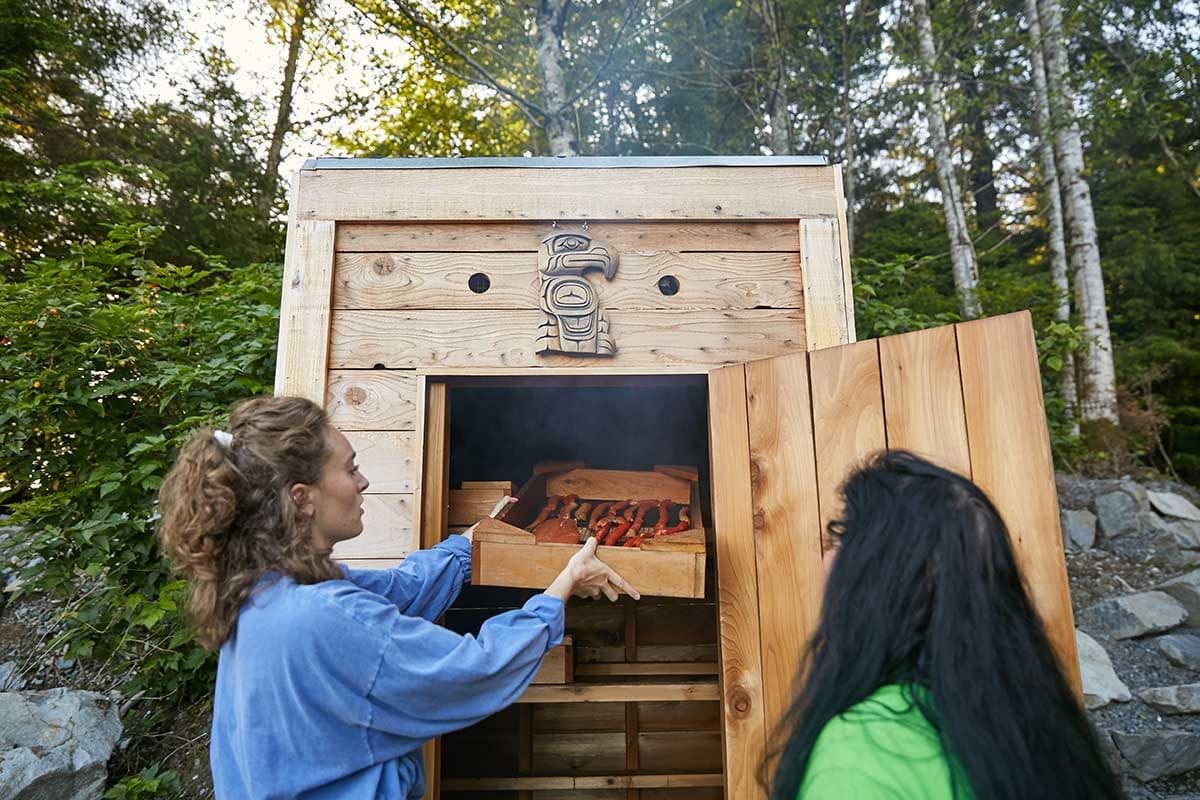
Our blast-freezing process also allows us to lock in the bounty of summer for the long winter months. Just like Alaskans, our members can taste a bit of summer in the winter thanks to freezing technology that keeps our catch fresh all through the year.
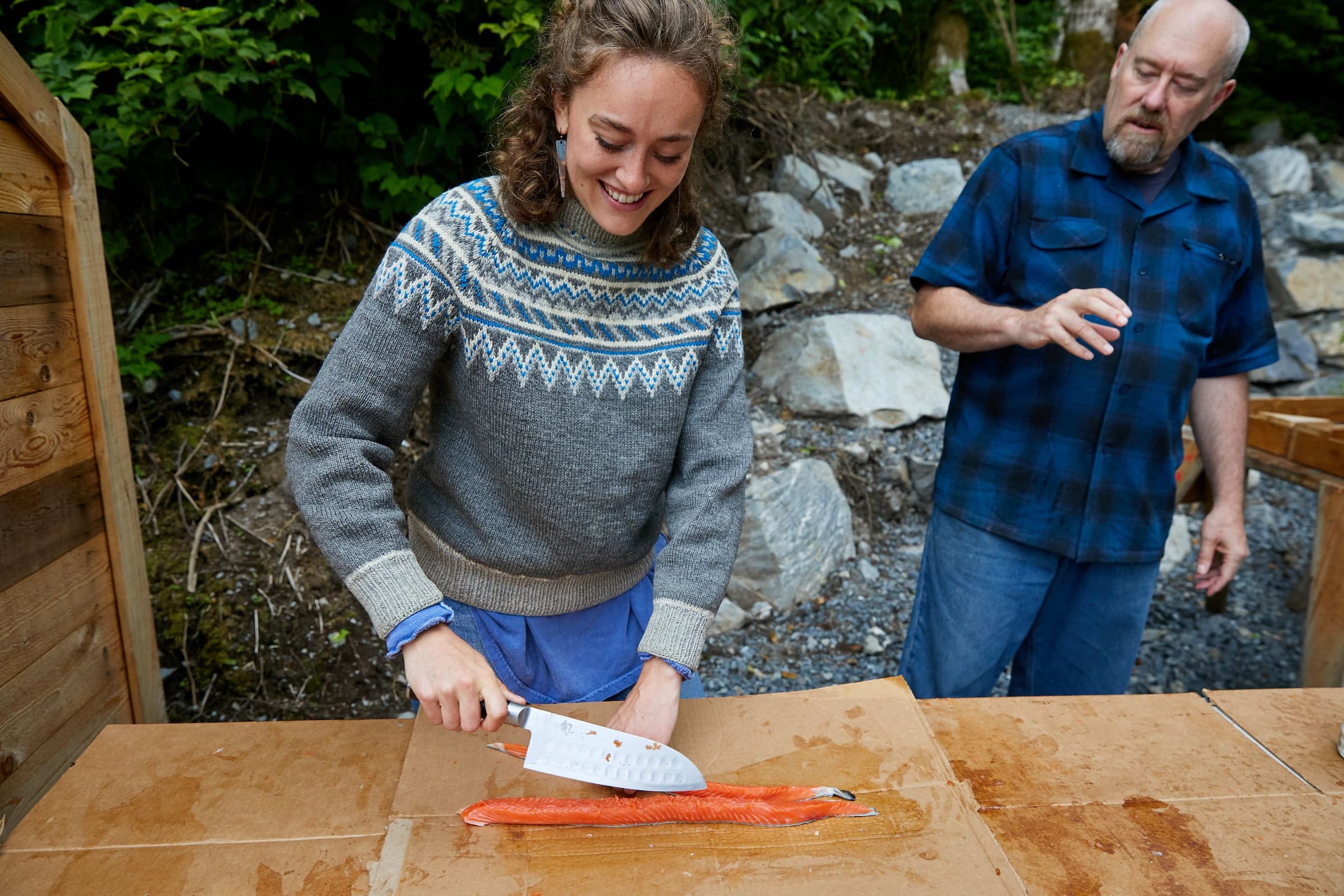
The fish you receive in your share box each month is the product of the experience and hard work of Alaska’s small-boat fishermen, but it also reflects the dynamic and wild nature of the seas. We do our best to communicate your projected harvest, but nature doesn’t always comply with our wishes.
We hope you enjoy every fish, crab, or shrimp, because it reflects what is abundant and in reach of small-boat fishermen. No matter what your box includes, our culinary team has you covered — whether you want to cure, sear, blaze, poach, or bake your seafood.
As the seasons change and we prepare to celebrate the fruits of another year, we hope your gatherings are brightened by wild-caught seafood from fishermen like Karl Jordan and Casey DiGennaro who set their schedule by the rhythms of the sun.
*Ocean bright salmon have yet to change color before they return to their natal streams to spawn.

